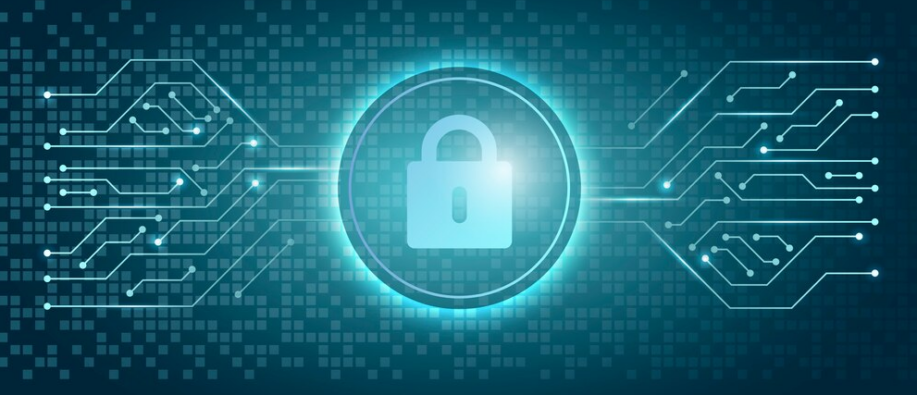Is AI a Boon or a Burden to Cybersecurity?
In the rapidly evolving landscape of cybersecurity, artificial intelligence has emerged as both a powerful tool and a potential challenge. As cyber threats grow more sophisticated, the integration of artificial intelligence into security measures is not just an option but a necessity. However, this technological advancement comes with its own set of risks and complexities. Let’s check out how AI impacts cybersecurity.
The Boon of Artificial Intelligence in Cybersecurity
AI's capability to analyze vast amounts of data at incredible speeds has revolutionized cybersecurity. Traditional methods of identifying threats often involve manual processes that are both time-consuming and prone to human error. Artificial intelligence, however, can swiftly detect patterns and anomalies that would take human analysts much longer to identify.
Enhanced Threat Detection
One of the most significant benefits of artificial intelligence in cybersecurity is its ability to enhance threat detection. Artificial intelligence algorithms can process and analyze data from various sources, identifying potential threats in real time. This proactive approach helps in mitigating risks before they escalate into major security breaches. Machine learning models, a subset of artificial intelligence, learn from past incidents to predict and prevent future attacks, making security systems more robust and adaptive.
Automation of Routine Tasks
Artificial intelligence also automates routine tasks that were traditionally handled by cybersecurity professionals. By automating tasks such as monitoring network traffic, analyzing logs, and identifying vulnerabilities, artificial intelligence allows human experts to focus on more complex issues that require critical thinking and nuanced understanding. This increases efficiency and improves the overall security posture of an organization.
Improved Incident Response
In the event of a security breach, artificial intelligence can significantly improve the speed and effectiveness of incident response. AI-powered systems can quickly assess the scope of an attack, isolate affected areas, and recommend remediation steps. This rapid response capability is crucial in minimizing damage and restoring normal operations swiftly.
The Burden of Artificial Intelligence in Cybersecurity
While artificial intelligence offers numerous advantages, it also introduces several challenges that cannot be ignored. The dual-use nature of artificial intelligence means that while it can be used to defend against cyber threats, it can also be exploited by malicious actors.
AI-Powered Cyber Attacks
Cybercriminals are increasingly using artificial intelligence to launch more sophisticated and targeted attacks. Artificial intelligence algorithms can be used to automate phishing campaigns, create deepfake content, and identify system vulnerabilities more efficiently than traditional methods. This arms race between defenders and attackers makes the cybersecurity landscape more complex and unpredictable.
Ethical and Privacy Concerns
The deployment of artificial intelligence in cybersecurity raises significant ethical and privacy concerns. AI systems often require access to vast amounts of personal data to function effectively. This creates a potential risk of misuse or unauthorized access to sensitive information. Ensuring that artificial intelligence systems are transparent and adhere to ethical guidelines is essential to maintain trust and protect privacy.
Dependence on AI
Over-reliance on artificial intelligence can also be a pitfall. While artificial intelligence can automate many tasks, it is not infallible. Artificial intelligence systems can be fooled or manipulated by sophisticated attackers, leading to false positives or negatives in threat detection. Maintaining a balance between AI and human expertise is crucial to ensuring a resilient cybersecurity framework.
FAQs about AI in Cybersecurity
1. Can artificial intelligence completely replace human cybersecurity professionals?
No, artificial intelligence cannot completely replace human cybersecurity professionals. While artificial intelligence can automate many routine tasks and enhance threat detection, human expertise is still essential for understanding complex threats and making critical decisions.
2. How can organizations mitigate the risks associated with artificial intelligence in cybersecurity?
Organizations can mitigate risks by implementing robust AI governance frameworks, ensuring transparency in artificial intelligence operations, and continuously monitoring AI systems for any anomalies or biases. Combining artificial intelligence with human oversight is also crucial for balanced cybersecurity.
3. What are the main ethical concerns of using artificial intelligence in cybersecurity?
The main ethical concerns include the potential for artificial intelligence to be used maliciously, privacy issues arising from the vast amount of data artificial intelligence systems require, and the risk of bias in artificial intelligence algorithms. Addressing these concerns requires stringent ethical guidelines and transparency in AI usage.
Conclusion:
Artificial intelligence is both a boon and a burden to cybersecurity. Its ability to enhance threat detection, automate routine tasks, and improve incident response is invaluable. However, the risks posed by AI-powered attacks, ethical concerns, and over-reliance on technology cannot be overlooked. Balancing artificial intelligence 's capabilities with human intelligence and ethical considerations will be key to leveraging its full potential in the fight against cyber threats.
Also Read: Cybersecurity Metrics Measuring the Safety of Your Data





